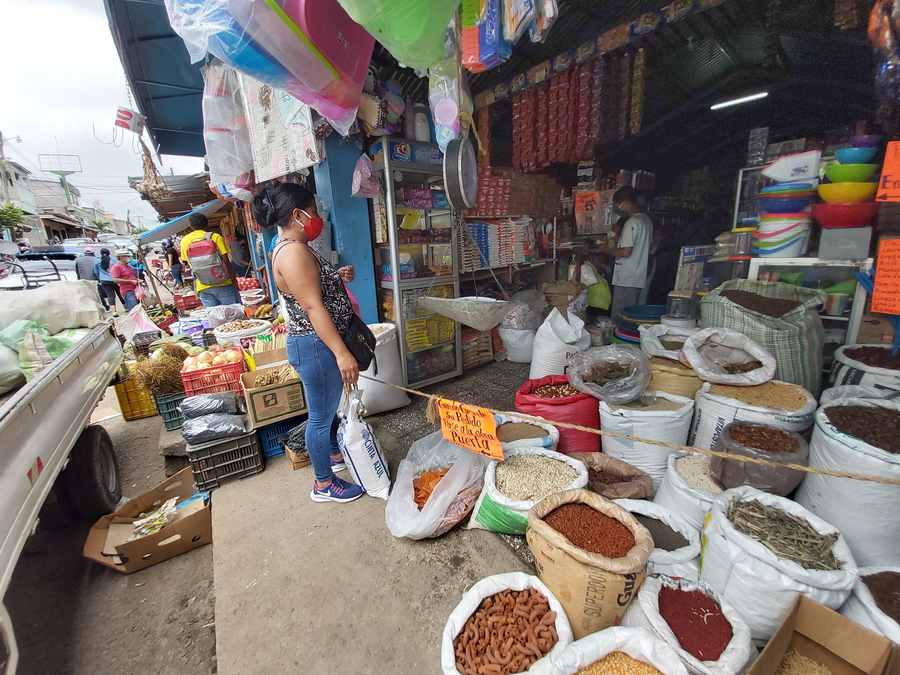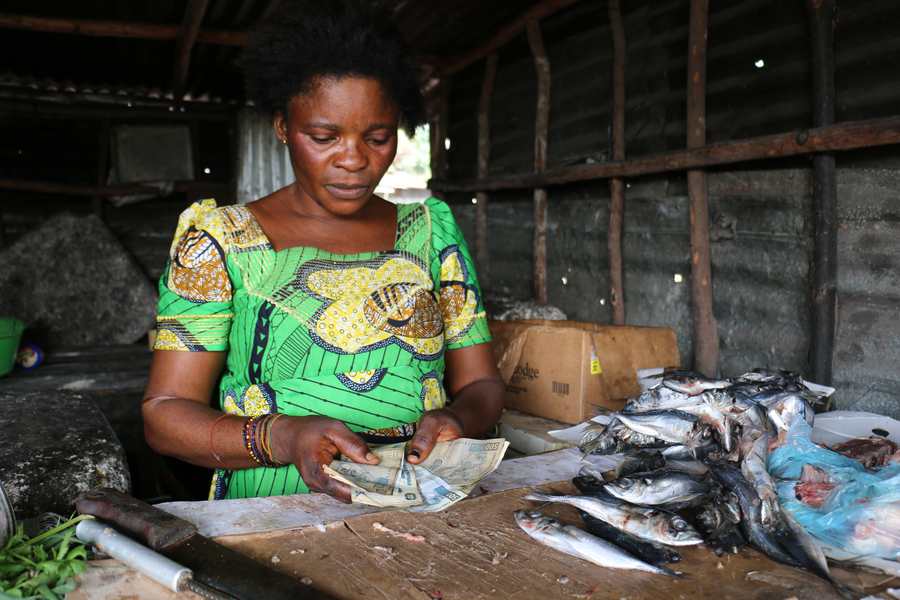COVID-19 turned back clock on hunger gains but taught lessons that can revive zero-hunger goal, says WFP report
Countries can still deliver on the pledge to achieve zero hunger by 2030 despite the seismic events of the past year and the outbreak or threat of famine across multiple countries – this is the main message emerging from the World Food Programme (WFP)’s Annual Review for 2020.
“The challenges of COVID-19 have been immense, but WFP’s determination to save lives and change lives remains just as strong as ever,” says WFP Executive Director David Beasley in the report’s foreword.
“After the turmoil of the past year, we must now redouble our efforts to end global hunger and seize the opportunity to start building the better world we all want to see. It is time to work together, in partnership, to achieve it.”
Such an approach is particularly essential in the immediate term if WFP and partners are to tackle famine which now exists among 584,000 people in Ethiopia, Madagascar, South Sudan and Yemen, and threatens a further 41 million people in 43 countries.
While the cataclysmic effects of COVID-19 have pushed 124 million people into extreme poverty, brought inequality to record levels and eroded many hard-won gains, the pandemic has also shown what is achievable through investment and strong partnership between WFP and government donors, sister UN agencies, the private sector, finance institutions and civil society.
Donor support underpinned huge COVID-19 response
In the midst of such a tumultuous year, WFP’s assistance reached a record 115.5 million people, thanks to the steadfast support of its donors, who contributed an unprecedented US$8.4 billion despite mounting pressure on domestic finances.
WFP was the backbone of the international humanitarian response to the pandemic, transporting essential supplies and workers for nearly 400 UN bodies and NGOs to keep critical global supply chains moving. Its expertise in cash programmes allowed WFP to quickly pay out a record US$2.1 billion in money and vouchers to vulnerable families.
In 2020, the coronavirus pandemic led to a new face of food insecurity emerging, as people who had been previously able to support themselves were put out of work and confronted by rocketing food prices. Hunger spiked among urban populations too as people were left jobless and without safety nets to fall back on. For example, most of the 3 million people WFP added to its programmes in Afghanistan were based in urban areas.

Social protection was key to buffering the worst effects on communities, but the pandemic exposed that many national programmes lacked the coverage and ability for fast response. WFP provided technical support to help 78 governments develop new assistance programmes and to adapt and scale up national social protection systems. WFP’s experience in delivering food and cash transfers, digital knowledge, and partnerships with finance institutions and the private sector were pivotal. These developments highlighted the potential of social protection in laying a solid foundation for zero hunger and long-term sustainability.
Similarly, WFP stepped in when the world’s largest safety net – school meals – was decimated during the pandemic. As schools closed their doors to 1.6 billion children and 370 million were left without their main meal of the day, WFP shifted quickly from school feeding to take-home rations and cash transfers — and helped 50 governments to do the same. Feeding programmes bring children to school and give them the energy to learn, grow and flourish, supporting longer-term health and productivity.

Throughout 2020 – the year in which WFP was awarded the Nobel Peace Prize for its efforts to combat hunger, better conditions for peace and help drive efforts to prevent hunger being used as a weapon of war – conflict continued to fuel hunger, including through displacement and by limiting access to communities. At the same time, extreme and deadly weather events further wrought havoc on people’s livelihoods.
Ongoing challenges require renewed commitment
Alongside the huge COVID-19 response, WFP maintained its existing operations and responded to emergencies such as hurricanes Eta and Iota which devastated Central America. In East Africa, WFP scaled up by more than 50 percent as COVID-19 collided with lean season, the worst locust plague in decades and widespread flooding that affected 6 million people and drove 1.5 million from their homes.
Progress towards achieving the Sustainable Development Goals has been seriously hampered by the events of the past year. But the lessons of that time need to be used to regain ground and meet the 2030 deadline for zero hunger.
“We can get back on track if we act decisively and act together,” the Annual Report concludes. “WFP is confident that we can avert catastrophic famine and contribute in a much broader way…to a sustainable future for all. We must build on the commitment and collaboration of 2020, working together as a global system.”

